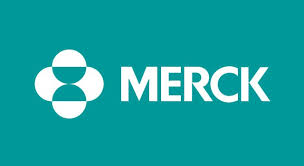
As surprisingly strong demand for animal health products, vaccines and its hepatitis C treatment offset nearly $700 million in lower sales from drugs that lost patent protection, Merck & Co Inc on Tuesday reported better-than-expected profit in the first quarter.
The U.S. drugmaker sees future sales opportunities across multiple types of cancer, despite first quarter sales of $584 million falling just shy of analysts' estimates from its fast-growing immuno-oncology drug Keytruda whicih it claims is gaining market share.
Inn case of for previously untreated, or for first-line, lung cancer and it is looking to expand its use in second-line lung therapy, Keytruda has become "the most prescribed" product, the company said.
A potential approval for Keytruda in combination with chemotherapy is awaited by Merck which it hopes will comes next week.
"The approval could meaningfully boost sales of Keytruda given the size of the lung cancer market," said Edward Jones analyst Ashtyn Evans of by far the largest oncology market.
The combination was called "a major opportunity to establish Keytruda further as a real preferred treatment therapy", by Research chief Roger Perlmutter.
With 15 percent of U.S. sales for that indication now compared with 40 percent from lung, Keytruda use is also growing in head and neck cancers.
Due to a favorable foreign exchange environment, from its prior view $3.72 to $3.87, the company slightly raised its 2017 adjusted earnings forecast to a range of $3.76 to $3.88 per share. And up from $38.6 billion-$40.1 billion, it now expects full-year revenue of $39.1 billion to $40.3 billion.
Despite new competition for rheumatoid arthritis drug Remicade in Europe and the loss of U.S. patent exclusivity on cholesterol drug Zetia, antibiotic Cubicin, Nasonex nasal spray, total revenue rose 1.3 percent to $9.43 billion in the quarter, beating analysts' average estimate of $9.25 billion. Going forward, competition from cheap generic rivals will also be faced by Merck's blockbuster cholesterol drug Vytorin.
"In addition to Keytruda, we've got multiple other launches that are showing good growth and we've got a strong portfolio of vaccines" to help offset loss of exclusivities, said Adam Schechter, Merck's head of global human health.
While sales of $532 million for Gardasil vaccine against human papillomavirus also sailed past Wall Street forecasts, Merck's hepatitis C treatment Zepatier had sales of $378 million, topping analysts' estimates of $269 million. Animal health sales grew 13 percent to $939 million.
However, animal health growth would be "more measured in subsequent quarters", the company cautioned.
Excluding items, Merck earned 88 cents per share, beating analysts' average estimate by 5 cents, according to Thomson Reuters I/B/E/S.
Merck shares were up 10 cents at $62.48.
(Source:www.reuetrs.com)
The U.S. drugmaker sees future sales opportunities across multiple types of cancer, despite first quarter sales of $584 million falling just shy of analysts' estimates from its fast-growing immuno-oncology drug Keytruda whicih it claims is gaining market share.
Inn case of for previously untreated, or for first-line, lung cancer and it is looking to expand its use in second-line lung therapy, Keytruda has become "the most prescribed" product, the company said.
A potential approval for Keytruda in combination with chemotherapy is awaited by Merck which it hopes will comes next week.
"The approval could meaningfully boost sales of Keytruda given the size of the lung cancer market," said Edward Jones analyst Ashtyn Evans of by far the largest oncology market.
The combination was called "a major opportunity to establish Keytruda further as a real preferred treatment therapy", by Research chief Roger Perlmutter.
With 15 percent of U.S. sales for that indication now compared with 40 percent from lung, Keytruda use is also growing in head and neck cancers.
Due to a favorable foreign exchange environment, from its prior view $3.72 to $3.87, the company slightly raised its 2017 adjusted earnings forecast to a range of $3.76 to $3.88 per share. And up from $38.6 billion-$40.1 billion, it now expects full-year revenue of $39.1 billion to $40.3 billion.
Despite new competition for rheumatoid arthritis drug Remicade in Europe and the loss of U.S. patent exclusivity on cholesterol drug Zetia, antibiotic Cubicin, Nasonex nasal spray, total revenue rose 1.3 percent to $9.43 billion in the quarter, beating analysts' average estimate of $9.25 billion. Going forward, competition from cheap generic rivals will also be faced by Merck's blockbuster cholesterol drug Vytorin.
"In addition to Keytruda, we've got multiple other launches that are showing good growth and we've got a strong portfolio of vaccines" to help offset loss of exclusivities, said Adam Schechter, Merck's head of global human health.
While sales of $532 million for Gardasil vaccine against human papillomavirus also sailed past Wall Street forecasts, Merck's hepatitis C treatment Zepatier had sales of $378 million, topping analysts' estimates of $269 million. Animal health sales grew 13 percent to $939 million.
However, animal health growth would be "more measured in subsequent quarters", the company cautioned.
Excluding items, Merck earned 88 cents per share, beating analysts' average estimate by 5 cents, according to Thomson Reuters I/B/E/S.
Merck shares were up 10 cents at $62.48.
(Source:www.reuetrs.com)














